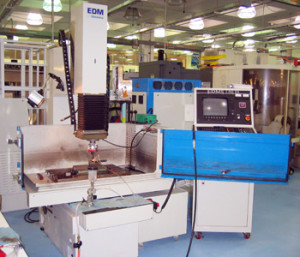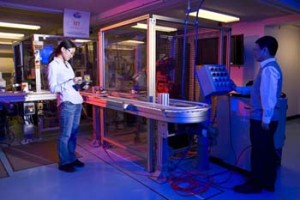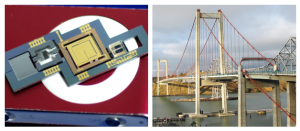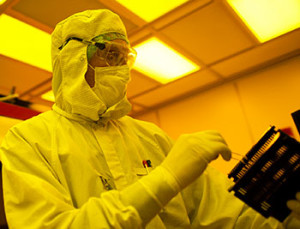
The charter of the NSF Engineering Research Center for Reconfigurable Manufacturing Systems (ERC/RMS) is “bringing the RMS science to the factory floor” with new scientific methodologies and innovative equipment that enable to launch production faster, with higher productivity and improved part quality. RMS technologies give manufacturers “exactly the production capabilities needed, exactly when needed” – an important advantage when competing in the global marketplace.
The mission of the Center for Wireless Integrated MicroSensing and Systems (WIMS2) at the University of Michigan is to advance the design, fabrication, and breadth of the applications for sensor-driven microsensors and systems through research, education, and interactions with industry. These technologies include: micro and nanoscale fabrication, micromachined RF filters and resonators, packaging, power harvesting, low-power circuitry, and wireless interfaces with applications in biomedical devices, chemical and environmental sensors, and infrastructure monitoring. The applications’ focus and interdisciplinary nature distinguishes WIMS2 from other university research efforts. The relevance of this research is shown by the 13 start-up companies and 69 patents the Center has generated over the past 14 years.
The Lurie Nanofabrication Facility (LNF) brings together optics, solid-state electronics, materials, and nano-technology expertise to support fabrication, testing, and measurement capability. The LNF is available, on a fee basis, for use by research groups from government, industry and universities. Equipment and processes are available for research on silicon integrated circuits, MEMS, III-V compound devices, organic devices, and nanoimprint technology. We also encourage researchers from non-traditional disciplines to make use of our processes, such as metal and dielectric coatings, vacuum processes, fabrication of micro and nano components, and metrology tools.
Center for PRedictive Integrated Structural Materials Science (PRISMS)
PRISMS is short for PRedictive Integrated Structural Materials Science. Combining the efforts of experimental and computational researchers, the overarching goal of the PRISMS Center is to establish a unique scientific platform that will enable accelerated predictive materials science for structural metals. Our ambitious vision is that the PRISMS tools and protocols will become a community-developed, extensible scientific core for accelerating the development of new materials.
The Tauber Institute for Global Operations is a premier multidisciplinary operations program of the University of Michigan. Its mission is to be the recognized leader in operations: utilizing theory, impacting practice and disseminating knowledge. For more than 20 years the Tauber Institute has impacted operations worldwide. Elements of the program include the LeadershipAdvantage program, facility tours and team projects where students work on substantive issues to earn or save sponsoring companies millions of dollars from the team project results.

Based at the University of Michigan‘s Ann Arbor campus, the S.M. Wu Manufacturing Research Center (WuMRC) is a College of Engineering Center with participating faculty and researchers from the Departments of Mechanical Engineering (ME) and Industrial and Operations Engineering (IOE). The WuMRC also has ties with over 60 industrial partners, including General Motors, Chrysler, Ford, Boeing, and many of their suppliers. In addition, many of the research projects have been supported by various government agencies including National Science Foundation, National Institute of Standards and Technology (ATP Programs), Department of Defense, and Department of Energy.





